The site of the old power station in Marsa which closed its doors in recent years should be turned into a yacht marina, Francis Debono, Marsa’s long serving mayor has said.
The power station was completely demolished earlier this year, but there are no plans for the huge area – which spans something to the tune of 100 football pitches - as of yet. Asked during an interview what the Marsa local council’s vision for the now abandoned site is, Debono said that a yacht marina in the area would be perfect for the re-generation of his locality.
A yacht marina would not only encapsulate the story of the locality as a point of call for ships, he said, but it would revive Marsa, and it would even bring back the maritime sector that had abandoned the town many years ago.
Given that the power station has brought so much suffering to Marsa residents, who had to put up with its noise, smoke and hundreds of workers coming in and out daily for almost 70 years, a marina would be the type of project that the Marsa residents deserve, Debono said.
The council’s ideal vision for the old power station site was a topic of discussion in an interview that The Malta Independent carried out with Francis Debono on Marsa and the realities associated with it, with various subjects such as security, integration and the recently proposed local government white paper which aims to reform the functions of local councils across Malta and Gozo also discussed.
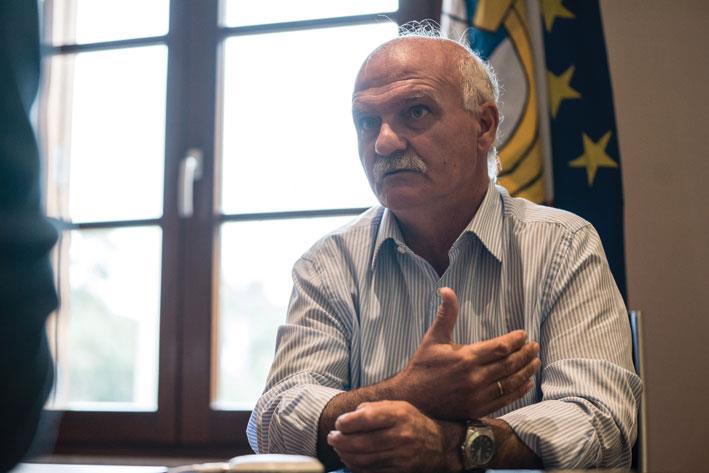
What realities are Marsa residents facing in their daily lives?
There are new realities, with big challenges. The influx of foreigners coming into the locality has, I believe, created a reaction of fear. This is for various reasons; firstly, social media. When somebody is exposed for some form of wrongdoing, then that is associated with the whole demographic in question. People also follow foreign news, and see events of a terrorist nature happening abroad, and this could create a sense of fear of similar incidents happening in Malta. Then there are the true extremists who simply seem to have a phobia towards foreigners. I think this is the wrong message.
Malta is an open country now more than ever before. Ever since the country entered the EU, I think we’ve been in a transition of change and of opening up. However sometimes I do think that, even though the economy is going extremely well, the Maltese people weren’t really prepared in a cultural sense for opening up.
In Marsa, there is a somewhat high percentage of foreign residents compared to other localities; what more needs to be done to help these foreign residents integrate?
Sometimes seeking integration isn’t easy due to the foreigners themselves, because they spend a very short period of time here. They might be here one month, but the next month they’d find a better place to live in in another locality and move there.
Sometimes, that same foreigner needs to look and see what the culture of the location is. They must understand that, while for example they may be coming from a third world country, they are coming to a European one which is ever changing; so they need to adapt themselves to that changing environment and come closer to the community to integrate effectively.
We must understand that the main intention of the individual is to work and earn a salary – much like in the case of most Maltese. In many senses we’re a community that cares about what’s inside their doorway; and so things like integration or amalgamation into the community are very rarely the first priority. That’s what I say that it isn’t easy. These people are here because their country has no jobs to offer, or has its own problems, and like anyone else deserves they just want to live a comfortable and decent life.
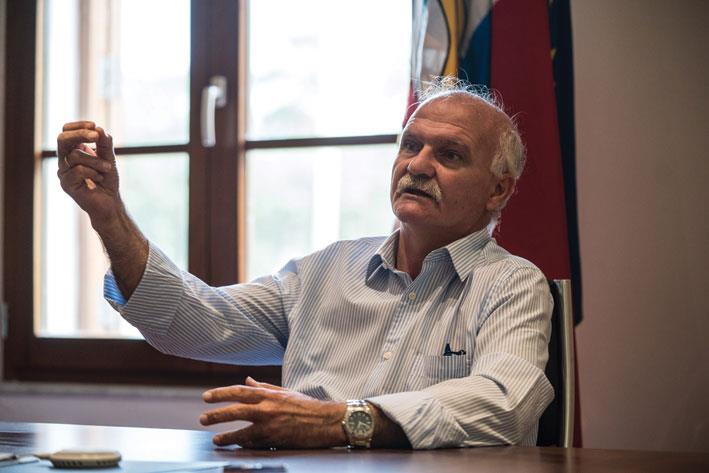
Some months ago a by-law was passed by the Marsa council, and then also by the Hamrun council, to clamp down on loitering. Why did you implement such a by-law, and what is your reaction to criticism from NGOs who feel that such a law could lead to more ‘racial profiling’?
These NGOs aren’t understanding the new problems being created in localities like Marsa, Hamrun, and Msida by an influx of foreigners who don’t even have the decency to respect the locality that they’re living in.
Personally, I disliked the large amount of foreigners who would gather around the outskirts of the town and loiter, even for the purpose of prostitution. One needs to look at this in two manners. In the case of prosititution, of course this is still illegal, and in the case of those simply loitering and waiting for work, it’s a bit like waiting for charity.
Our council sent out a message saying that if someone wants to find a job, they should go through the proper channels. We can’t reach a point where our streets are turned into a market selling people.
There needs to be an attempt to actually approach these people and see what their needs are. In the case of prostitution; the state needs to legislate from start to finish, but also to see why this person has fallen into this habit. Then we need to make sure that the roads are not used for this and that a stigma around a certain locality is created; that is the last thing that we want.
How widespread is prostitution in Marsa?
It’s not that widespread; but it is present. We normally receive the statistics through a parliamentary question showing the number of arrests by locality; but it’s not a source of pride in saying that a certain number of prostitutes have been arrested in Marsa. We are not a locality at the top of the spectrum in this sense; and you don’t want to reach that point, because having such an image for the locality results in the residents suffering.
If a place has its negatives exposed, property loses value, those who want to live there lose the will to do so; it just damages everyone. We need to see how we can help people across all localities; we can’t have political figures like the former leader of the opposition who went to Cottonera before the last election and exposed all the negatives of the locality.
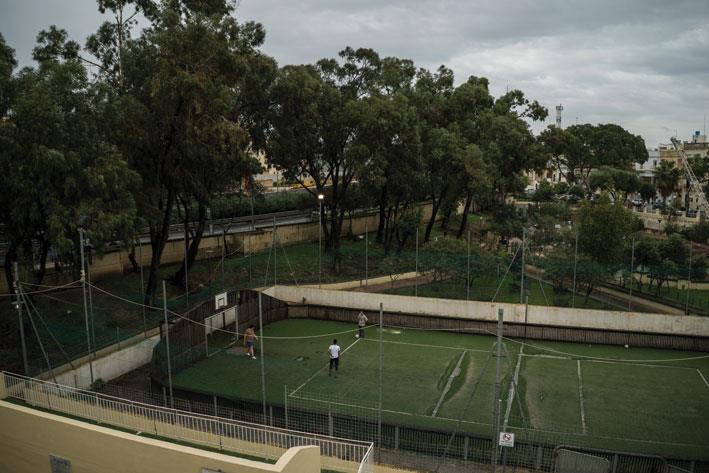
Has the by-law worked as intended?
It has in the sense that every morning, you no longer see that influx of people outside loitering. I’m not saying that i don’t expect to see anyone as that’s impossible; but there need to be initiatives so that these people are employed, and are not left there to be taken advantage of to the point that they almost have to prostitute themselves to get a job.
A measure related to security announced during the most recent Budget speech was the introduction of a facial recognition system which will be implemented first in Paceville, but later in Marsa. What is your view on this proposed system?
I agree with this system. It’s a system that is used across all the major cities in Europe. It’s used to show that this place is secure, and as long as youre not doing anything wrong – a camera, checkup, roadblock or anything like that is not going to bother you. It bothers only those who are in a place with the intention of doing something illegal. Abroad they’ve had experiences of terrorism, meaning that, almost without wanting, they had to implement this type of security system. However, we cannot say that because Malta, thankfully, has not experienced a terrorist attack we should not look at the security interests of our citizens.
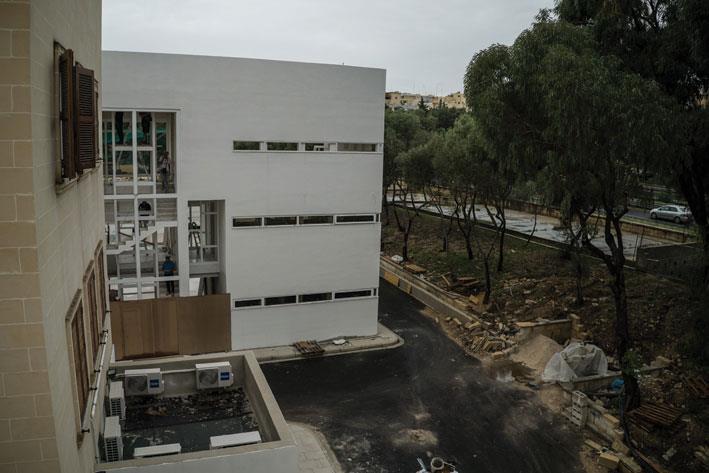
Do you feel like you get enough support from the government and authorities in terms of security?
A lot of the time, but however much you have – you keep wanting more. One has to see the circumstances of the country; it is growing economically and in terms of population, especially through foreigners. Untill this stabilises, there is the need for more security and surveillance. Like that you would at least be showing people that there is a sense of safety and security, but at the same time ensuring that if they do something wrong, they are going to face the consequences. One needs to find a balance not to turn the country into a police state, but at the same time ensure that there is enough police presence for people to feel safe. There needs to be a formula along these lines.
What would this formula consist of ideally?
There needs to be a synergy between the police, the local council and the residents. The majority of the residents, across the whole island not just in Marsa, are still afraid to report to the police. If someone sees something that isn’t looking right; drugs, prostitution or anything of the sort, they need to report this. A synergy between these three elements, I think, is what we need for a much safer community with people’s minds at rest.
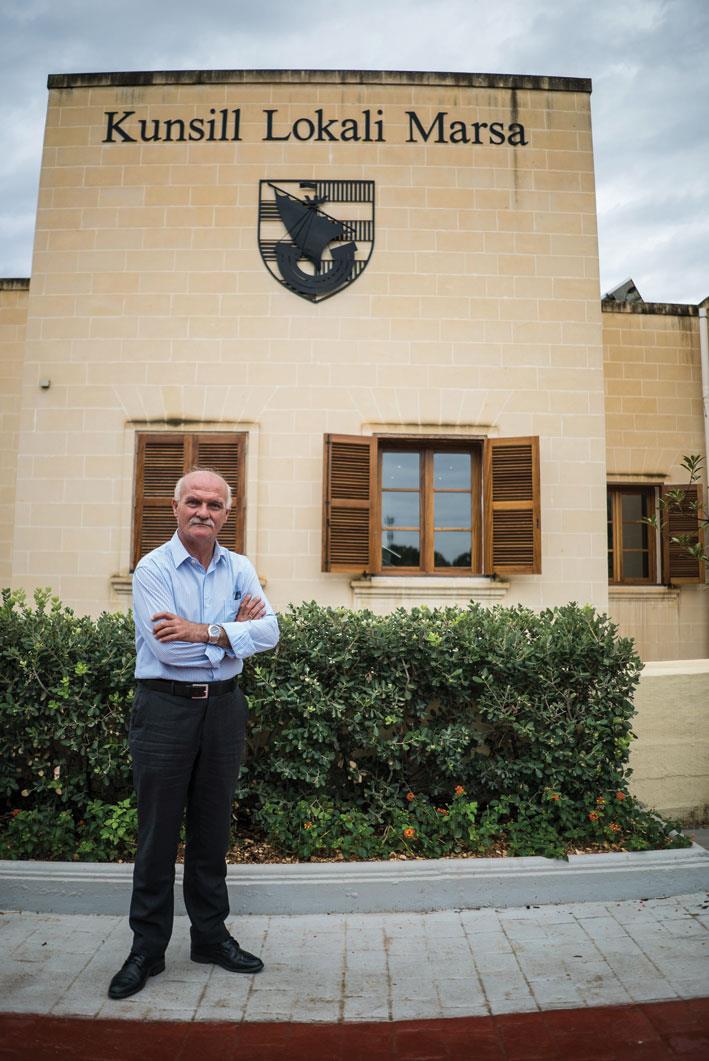
Is there this synergy between the council and the authorities today?
Yes, over the last two years or so we’ve managed total coordination. We met numerous people; Prime Minister Joseph Muscat, the previous and current Home Affairs Minister Carmelo Abela and Michael Farrugia, and the police commissioner. With the latter we shared what residents’ fears are and what our vision was for having a safe locality. In fact today we have our own inspector based here; a far cry from initial considerations that smaller stations like that in Marsa should close and regional police stations should open instead.
Marsa as a town has always been very industrial by nature, with the power station being a major contributor to that. With the power station closed now, and with no plans for the area apparent as of yet; how would the council like to see this site transformed?
Firstly, one needs to remember that our locality has a strategic place in Malta since it is close to Grand Harbour. The biggest negative has always been that the industry in the area never tried to contribute back into the locality where they are based. When the Freeport opened, commercial activity drastically reduced; but still some big companies remained here as they are now amalgamated with their surroundings.
However they still ignore the needs of the locality. Places abroad like Liverpool or Blackpool, were heavy industrial zones; but today they have changed drastically, and the industrial sector is basically in synergy with the locality, leaving minimal impact.
The power station also had a huge impact on us and the surrounding area. Today though, we are in a new phase where after 70 years or so, we have removed that negative impact. Obviously, everybody is now wondering what will happen to this area. To say that the council wants it is impossible as it is huge – but we appeal that those who will have it, regenerate the site in a manner that will give a breathe of fresh air to the Marsa residents.
Down the road, there is the Valletta Waterfront which took that name just for marketing purposes; the quay it’s on was initially part of Marsa. It was disappointing that Marsa wasn’t included in the name of this project – maybe as Valletta Waterfront Marsa – as such a thing would have raised the standing of Marsa as a locality a bit.
However now that there is a chance on the waterfront to the Menqa area. We’ve been talking about this area for 25 years; let’s transform it into a yacht marina. A yacht marina would not only encapsulate the story of the locality as a point of call for ships, but it would revive Marsa, and it would even bring back the maritime sector that was abandoned from here many years ago. It’s the type of project that the Marsa residents deserve, especially from an area which has given them so much suffering in the past.
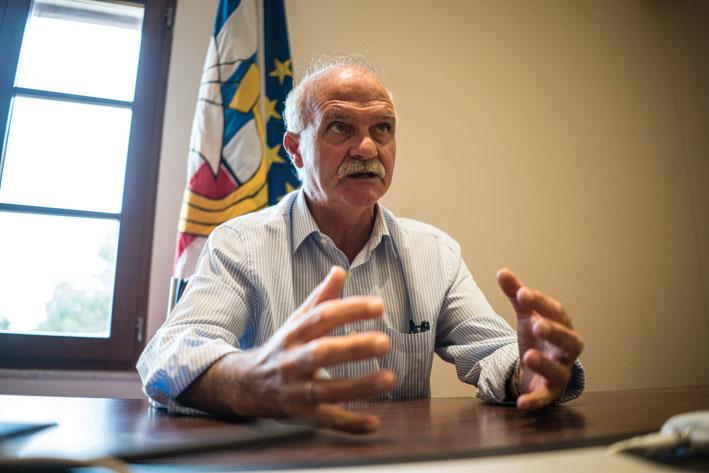
On a more technical level, recently the government published a White Paper relating to the reforms of local councils. As someone who’s been involved in the council ever since its start; what is your view on the proposed reforms?
I saw the councils being born 25 years ago, when they had limited functions.From there we have come a long way; but we have spoken of reform, which has nearly never resulted in positive points both for the council or the people it serves.
The main problem we face however, I think, is simple to see. The council is the middleman between the citizen and the central government, its departments and its services. If a person approaches the council with a complaint, and all we can do is pass it on to the respective entity; and then we do not even receive feedback from that entity- the first thing that the person who submitted the complaint is going to say is, “I went to the council for nothing”. That has to stop.
We then need to see more responsibilities for councils. 25 years ago we started with becoming responsible for rubbish collection. Let’s not leave the only function for the council collect rubbish and clean. Did we really need councils to do that?
In terms of regions; I do not expect to or even wish to pass on certain functions to the regional committees. Some new functions for it, dealing with things like schools and housing estates, I feel could be reducing the importance of the council. The council should never have to go begging for charity for maintenance from the regional committee, it should have the right to satisfy the needs of its own residents.
The main point of the reform is to strengthen the councils; and there are some interesting points, and others which require some change. What I hope is that once the reform is eventually implemented, we don’t just stop there. A local council is alive and discussion needs to be ongoing. A year after the reform is implemented for instance, we should sit down and evaluate things, see what we need to renew or what we need to totally change.
One reform I agree with, is to make the role of mayor a full time job. However, we must be carteful to ensure that a mayor doesn’t simply take on the role for the money. I do what I do because I love the locality, and the commitment i entered into 25 years ago was because i wanted my locality to move forward and improve, not because I want money for it. The council and all its members need to be given justified importance; we are elected in a democratic manner like anyone else after all, and many of our MPs today were in fact councillors at the start of their political careers. I had that chance to contest in 1996, but before I see my locality move forward and reach a certain level; I will not consider it. I prefer to give my service to my locality, where the satisfaction is in seeing how things have changed for the better in my home-town.